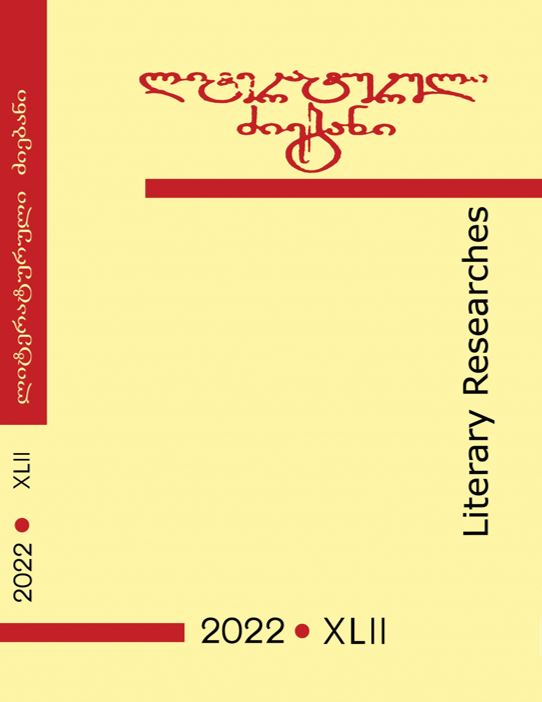Published 2022-04-30
Keywords
- manganese industry,
- Russian Empire,
- memories,
- undeserved accusations,
- archival material
How to Cite
Abstract
In the 19th century, manganese production started in Western Georgia. Many well-known entrepreneurs, writers and public figures were drawn to this business. Akaki Tsereteli was also actively involved in the “black stone fever”. While being in St. Petersburg, young Akaki became familiar with the monograph of the known German geologist Otto Abich who made the important discovery of manganese deposits in the Transcaucasus. Otto Abich was an outstanding expert in the field of geology, but behind his scientific research and observations was the great empire of tsarist Russia, which used all the resources of the conquered and annexed lands to maximize the growth of the empire’s economy, to oppress and deplete the “small peoples”. The colonial policy of the tsarist Russia towards the oppressed peoples was also exhibited by the following fact. Immediately after building the railway line in Shorapani, the government raised the prices for this transportation so making it difficult for Georgia’s industry to advance and even hindered the production of steel in Russia because for the production of steel manganese was required.
After becoming familiar with Abich’s work, Akaki brought famous mining engineers to Georgia, to thoroughly examine the raw materials and the poet himself was also actively involved in this activity. However, Akaki faced many objections and received lots of undeserved accusations. His sincere desire to develop manganese production, improve Georgia’s economic situation and create jobs for the locals, remained completely unappreciated. In his writings, Akaki often recalled and described the experiences he and his companions had while being engaged in this activity. The Censorship Fund of the National Archives of Georgia keeps the resolution of the Black Stone council, according to which Akaki was instructed to submit his writings on manganese ore in Shorapani viregion to the council. The autograph of Tsereteli’s unfinished letter “Black Stone Adventure” was attached to the resolution. This letter was not published during Akaki’s lifetime. In the letter, the author describes manganese-related events in more detail than in his previous writings. In the aforementioned text, we come across a Russian lady whom the poet refers to as “Countess Galvi.” The identity of this lady has not yet been established in numerous studies devoted to Akaki’s work. We have investigated and found out that she was the daughter of a wealthy Russian merchant and philanthropist, and her husband was Count of Galve. Countess Adelaide Galfe’s benevolent attitude towards Akaki was explained by genetic predisposition of this lady to kindness, as her mother was also known as a noble and charitable person. By examining the date of the council’s resolution and the content of the letter, we assumed the approximate date of writing the letter: from August 3, 1912 to November 1912. During the entire period when Akaki was involved in the manganese mining activities, one thought was running through his mind: “Who is a poet and who is a black stone!”

